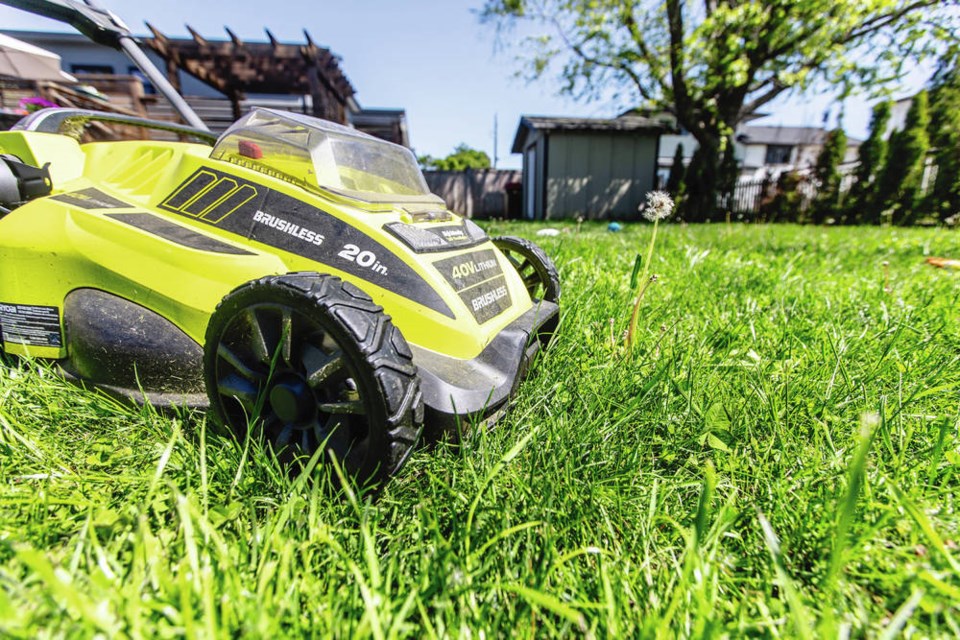Good news: I thought I was lazy, but it turns out I’m an environmental superhero. Suzuki should wear my picture on a T-shirt.
What I refer to is my inadvertent adherence to the No Mow May campaign in which Canadians are being urged to hold off cutting their grass this month. It’s an effort, pushed by the Nature Conservancy of Canada, to help the embattled pollinators that are so vital to the life cycle.
It’s also yet another boost to those whose unkempt lawns, once seen as an unflattering reflection of themselves, are now regarded as a symbol of ecological responsibility.
It was not always thus. Back in the 20th century, a well-manicured lawn was a sign of good citizenship, right up there with properly separated recycling, a shiny car and polished shoes.
A brown lawn, by contrast, was associated with people who drank Lucky Lager for breakfast, married close relatives and owned dogs that looked like something out of a Stephen King novel.
But then came the summer of 2001, when, after the south Island’s driest winter in a century, Victorians were urged to turn off their sprinklers. Brown became the new green. Lush lawns became the equivalent of the Confederate flag, once flown with pride but now a source of shame. Over the past few years, drought-shaming has become a thing on social media, with the hashtag #grasshole applied to those who break watering restrictions.
And now we have No Mow May. Given our early spring, it should probably have been called the less-alliteratively attractive No Mow April here on the Island, but you get the drift.
The idea, says the Nature Conservancy’s Jensen Edwards, is to offer pollinators access to as much food and nectar as possible during the early growing season. All those little flowers in your lawn, the clover and the dandelions, are like a buffet to them at a time when they really need it.
This is important because pollinators are on the decline. Invasive plants, urban sprawl that wipes out habitat and overuse of pesticides have all conspired against the mason bees, bumblebees, butterflies, moths, hummingbirds, flower beetles and other critters we rely on for things to grow. Lawns are their lifeboat. And, man, there are a lot of lawns, something like 6.2 million of them in Canada.
“That’s a heck of a lot of green space, and it’s a heck of a lot of monoculture green space,” Edwards says.
Essentially, the conservancy — and other nature and wildlife organizations supporting the No Mow May effort — is asking us to change the way we look at our yards. Edwards quotes his organization’s senior conservation biologist, Dan Kraus: “We conceive of our lawns as an extension of our living room carpet and not a natural space.” We tend to tend them by cultural convention, not thinking of the role they play in making the Butchart Gardens flowers and Saanich Peninsula crops grow, Edwards says. Can’t grow your own strawberries, apples and melons without pollination by wild insects. Can’t have the City of Gardens.
Vancouver Island beekeepers have been saying the same thing for years. Immaculately manicured lawns and gardens leave nowhere for bees to settle down, they say. They suggest leaving a part of your garden untouched.
They also fuss about the loss of native plants, the effect of pesticides and the agriculture economics that encourage farmers to grow big fields of a single crop. The bees whose hives are placed in such places don’t enjoy much diversity of diet. (“If you fed your kids nothing but Timbits, they wouldn’t be healthy,” is the way a member of the Capital Region Beekeepers Association put it a couple of years ago.)
But I digress, a bit. The point the Nature Conservancy of Canada is trying to make is that while the average resident might be daunted by the large-scale challenges facing pollinators, it is possible to help by not mowing our lawns as early or as often as usual. In short, our laziness is good for the planet.
jknox@timescolonist.com
